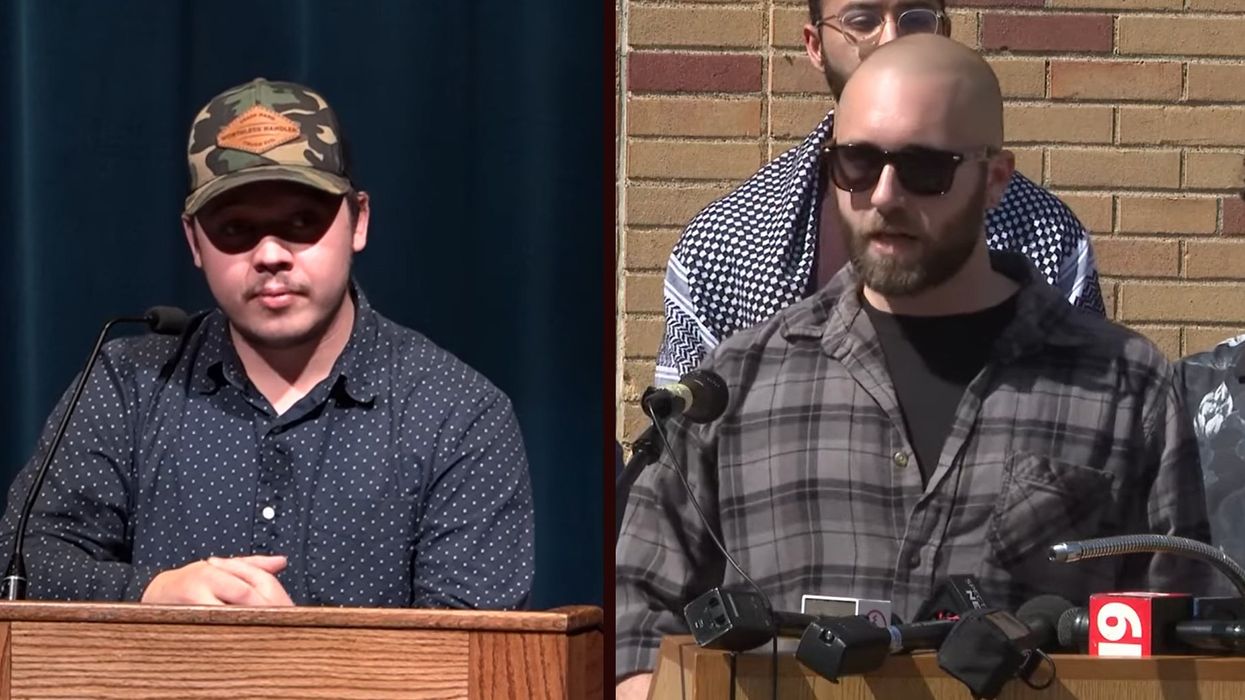
© 2024 Blaze Media LLC. All rights reserved.
The judicial tyranny never fails to disappoint. Now a federal court is saying the president can’t fire corrupt bureaucrats who run the VA hospitals and have failed our veterans.
Amidst the brouhaha over the firing of FBI Director James Comey, many commentators have brought to life the debate over the president’s ability to fire executive personnel. Anyone with a rudimentary understanding of the Constitution should recognize that, politics aside, a president has the legal authority to fire any executive official, because there is no position that is independent from the president’s executive leadership (assuming that position is not under the auspices of the legislative or judicial branches of government).
Even Congress has no power to force particular executive staff upon the president. Now the federal courts are essentially giving corrupt employees extra bites at the apple to keep their jobs … even when Congress explicitly agreed with the administration’s decision to terminate the bureaucrat.
Sharon Helman ran the VA hospital in Phoenix, Ariz., which, according to bipartisan investigations by Congress, was found to be neglecting patients and posting phony wait-times in order to bolster their performance bonuses. She was accused of retaliating against whistle-blowers. Helman was also recently found guilty of accepting $50,000 in gifts from medical industry lobbyists in a pay-for-play scandal and was sentenced to probation. The Obama-led VA fired her in 2015.
Now, the Court of the Appeals for the Federal Circuit is saying that, contrary to a recent law passed by Congress (which the court “struck down,” in part), Helman is entitled to another administrative appeal in order to save her job.
Here are the details from USA Today:
Helman will now have a chance to appeal her dismissal to the U.S. Merit Systems Protection Board, despite a criminal conviction in a separate court case.
The Court of the Appeals for the Federal Circuit shot down a provision of the Veterans Access, Choice and Accountability Act, a measure adopted by Congress in part to expedite the removal of Department of Veterans Affairs executives based on misconduct or gross incompetence.
The court ruled that, after an administrative judge upheld Helman's firing by the VA, she should have been allowed to appeal that ruling to the MSPB. However, based on the new law, board members refused to hear her case. Appellate justices agreed with Helman that the expedited procedure violated the Constitution's so-called "appointments clause" by placing too much power with an administrative judge.
The fact that even someone like Helman, amidst the VA crisis, cannot be readily fired … even after Congress made it easier to do so, demonstrates the unimaginable power of the judicial autocracy under which we live. It’s true that the 2014 act of Congress gave administrative judges more discretion to fire employees, but the president doesn’t need any act of Congress; any secretary or high government official, acting on behalf of policies set ultimately by the president, have the power to fire anyone for any reason. That the courts are now going after statutes that merely buttressed this power under the Obama administration demonstrates that they will easily go after firings from this administration that are not pursuant to statute, albeit in accords with Article II powers.
The president can fire any executive employee
The civil service laws are largely unconstitutional. As we’ve noted before, Congress has many Article I powers at its disposal to check a president, including the ability to defund an office, statutorily change its mission, or block (in the case of the Senate) new presidential nominees.
But Congress cannot force upon the president any particular personnel he doesn’t want to keep. There is no fourth branch of government that can be created by Congress, operating autonomously within the executive branch and not subject to the president’s power to fire. As James Madison said, “[I]f any power whatsoever is in its nature Executive, it is the power of appointing, overseeing, and controlling those who execute the laws.”
In 1926, back when judges actually understood the Constitution, Chief Justice (and former president) William Howard Taft upheld the plenary power of the president over the removal of executive officials in a scholarly 70-page opinion (Myers v. United States) which drew upon endless quotes from the Constitutional Convention and the members of the first Congress in 1789.
Yet, beginning in the FDR- and Warren-court eras, concurrent with the court expanding its own jurisdiction, judges began limiting Article II powers over firing and have slowly green-lighted the creation of a fourth branch of government. In the independent counsel case of 1988 (Morrison v. Olson), Justice Antonin Scalia, in a scathing dissent, noted how later court decisions were “gutting, in six quick pages devoid of textual or historical precedent for the novel principle it set forth, a carefully researched and reasoned 70-page opinion” of Taft.
What is so sad here is that fixing the VA is one of the few bipartisan issues in politics. Sure, there is a wide gulf between conservatives and Democrats over whether veterans should be endlessly dependent on government-run health care or offered better private options, but everyone agrees on the need to fire bad actors. Yet, it always comes back to the courts.
The need to strip the courts of jurisdiction
The House already passed in March the VA Accountability First Act, which would make it easier to fire poorly preforming, much less corrupt, employees of the VA. It’s time for them to repass the bill and add a provision exercising Article III Sec. II powers to strip the courts — especially the lower courts — of jurisdiction over this issue. What better issue to plant the flag of judicial reform upon than VA reform? Let Democrats side with judicial tyranny over veterans.
Unless Congress directly strips the court of jurisdiction or moves personnel firing claims to a different circuit, we will never be able to get past the juggernaut of the Court of Appeals for the Federal Circuit.
This specialized circuit (which was created by Congress in 1982, not the Constitution!) now has a 9-3 Democrat-appointee majority, with seven Obama appointees and no vacancies. It is gone for a generation. But it oversees the Merit Systems Protections Board, which means that any effort by the Trump administration to drain other department swamps will be stymied by this same court through the appeals process.
If Congress is going to allow a court it itself created in 1982 to continue holding jurisdiction over issues it granted them and can rescind at any time, its members are at fault. Absent wholesale judicial reform, it’s quite evident that even if the president gets serious about draining the swamp, and even if Congress passes new legislation expediting the firing of corrupt or failed VA officials, the courts will declare themselves king over those issues as well.
After all, if courts can have the final say on marriage, abortion, immigration, election law, and redistricting, what’s a couple of corrupt VA figures in the scheme of their social transformation?
Want to leave a tip?
We answer to you. Help keep our content free of advertisers and big tech censorship by leaving a tip today.
Want to join the conversation?
Already a subscriber?
Blaze Podcast Host
Daniel Horowitz is the host of “Conservative Review with Daniel Horowitz” and a senior editor for Blaze News.
RMConservative
more stories
Sign up for the Blaze newsletter
By signing up, you agree to our Privacy Policy and Terms of Use, and agree to receive content that may sometimes include advertisements. You may opt out at any time.
© 2024 Blaze Media LLC. All rights reserved.
Get the stories that matter most delivered directly to your inbox.
By signing up, you agree to our Privacy Policy and Terms of Use, and agree to receive content that may sometimes include advertisements. You may opt out at any time.



